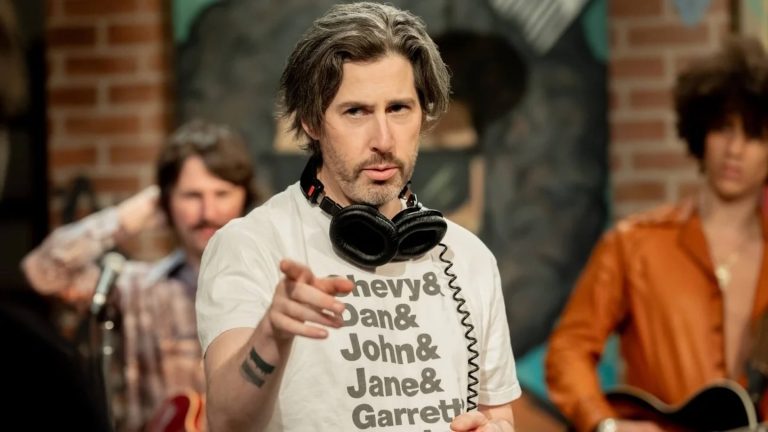
Should screenwriters be afraid to share their screenplay with peers and industry insiders?
The easy answer is a resounding, "No! Screenwriters should NOT be afraid to share their work!" But let's dig deeper into this common concern that most beginning screenwriters have during their screenwriting journey.
There are very few, if any, reasons to not share your screenplays.
Many beginning or cynical screenwriters point to script theft, concept mining, and subjective feedback as reasons that they are hesitant to share their work with others.
They fear that some producer or development executive will take their script, make subtle changes, and pass it off as their own.
They worry that industry insiders will take their "original" concept and assign it to another writer to make it their own.
They scoff at any negative feedback that they receive as nothing more than subjective viewpoints from people that either don't get or don't like the type of characters, stories, and stylistic choices found within their screenplays.
With those concerns in mind, here we share six reasons why you should share your screenplays with everyone you can.
1. Essential Pre-Marketing Peer or Mentor Feedback
Even the most brilliant and acclaimed cinematic storytellers share their work for feedback. Every legendary director has utilized feedback from their peers, mentors, and even strangers in the form of test audiences.
As a screenwriter, it's essential to get early feedback before you take your script out to agents, managers, development executives, producers, directors, and actors.
You need to push your cynical and protective mindsets aside and find the right people to take your screenplay to before you send it to anyone in the business for consideration.
The feedback you get doesn't have to be used. You have the freedom to pick and choose between what works and what doesn't. But the key thing is to consider it all.
Feedback and notes are powerful tools that you can use to develop your writing. And you can't get them without sharing your screenplay.
2. Remember That Hollywood Doesn't Need Your Ideas
Delusions of grandeur are frequent with screenwriters. We love our ideas and feel that Hollywood needs them. They don't. That's not to say that your original concepts don't have a place in Hollywood — they do. We're just saying that Hollywood has plenty of concepts to choose from.
The film and television industry is not going to go to unethical lengths to steal ideas because they have plenty of content at their disposal and within their reach. There's no reason to seek out screenplays to steal from.
Learn the best way to structure your screenplay with this free guide.
3. Hollywood Would Rather Buy Your Concept Than Steal It
If you've done your job as a screenwriter and have written an original concept that Hollywood didn't know they wanted, studios, networks, and production companies would rather pay for the rights to develop and produce them, rather than risking lawsuits and bad press after-the-fact.
Yes, there some bad apples out there. But most of them are low-level production companies or wannabe producers that don't have any real clout or resume anyway. The easy way to avoid these types is to only deal with legitimate industry players — all of whom can be found within a simple IMDbPro search that reveals whether or not an individual or company is producing features and shows with name casts and real distribution.
Never be afraid that you're script is going to be stolen — especially when dealing with real industry contacts. Do your research, and you'll have nothing to worry about.
4. Sharing Your Screenplay Means the Work Is Being Considered
If industry insiders aren't considering your work, how can you possibly become a professional screenwriter?
Unless you're an independent workhorse that develops, writes, produces, finances, and directs your own features, there's no possible way to excel within the film industry without sharing your screenplays.
No one is going to just give you a development deal.
No one is just going to blindly finance your movie based off of a logline and query letter.
Read ScreenCraft's Writing the Perfect Query Letter for Your Scripts!
No one is going to take you seriously as a screenwriter if you show any fear of sharing your screenplays.
When you have the opportunity to share your screenplays with industry insiders, there should be nothing but pure excitement because your work is being considered. And that is the first significant step for any screenwriter — being in the conversation.
You write the script. You network it to industry insiders and contacts. And based on your logline and query, you find people interested enough to take a look. Beyond that, it's out of your control. But you can't get to that point of consideration without sharing your screenplay.
So do your best to push away those amateurish worries and get that screenplay into the hands of anyone that can help make your screenwriting dreams come true.
5. You Worked Too Hard to Lock It Away
You have worked too hard on that screenplay to shove it into a drawer of self-consciousness and insecurity.
Be proud that you finished this screenplay — proud enough to want to share it with anyone willing to read it. And if it's not something that you're proud of, then do the work to make it better or consider it a learning tool to build on as you start the next.
Sure, that first or second script that you write may not be worthy of consideration. If you realize this, that's a true sign of being a great writer. When you can be objective towards your own screenplay, you're one step ahead of most writers out there.
But then you need to use those early screenplays as a learning tool to write ones that are worthy of consideration. And when you write those later scripts, it would be a disservice to you and the work you've put in to lock it away from everyone because you're scared that someone will steal it or ridicule it.
6. Closure
It's vital to the success and evolution of your screenwriting career to create a process that works.
The screenwriting process is comprised of stages and steps to follow:
- You find concepts to develop
- You choose each concept wisely
- You develop the idea and build on it
- You do the front-end work to prepare
- You write the script
- You put it away for two weeks to a month and then reread it cover-to-cover
- You rewrite as necessary and find the best possible draft you can muster
- You do the research required to figure out who to market the script to
- You prepare loglines and queries and choose who you are going to send them to wisely — then send them out
- Then you wait for the industry to request the script — and then you send it to them
Everything after that is out of your hands. The fates will decide the rest. But if you don't share that screenplay, there's no possible way for you to move up that ladder and further down that screenwriting career path.
And, even more important, the step of sharing the script means that you've reached a level where you're putting some necessary closure on that project.
Yes, you can and should take any feedback and notes into consideration for possible changes and rewrites. But once you share that script, you've completed the final part of the process and should now get ready to start that process over with the next screenplay.
Closure is a big part of each project. Keeping a screenplay's journey open-ended isn't going to get you anywhere. You write it, share it, and then move onto the next. And your marketing is something that can continue on in the background as you tackle your next cinematic tale.
You need to share your screenplays for essential feedback that can better your scripts.
You need to bring yourself down from that pedestal and remember that Hollywood doesn't need your ideas. But it's up to you to give them what they didn't know they needed.
You need to realize that Hollywood would rather option or buy your screenplay than steal it and face lawsuits and bad press.
You need to remember that you can't be in the conversation without getting your scripts into the hands of those that can make your screenwriting dreams come true.
You need to make sure that your time and efforts aren't wasted.
And you need that closure to help you move onto the next screenplay so that you can build your resume.
The whole point of becoming a storyteller is to tell stories to others. And you're doing that through your screenplay. But you're not telling your story to anyone if you don't share it.
Read ScreenCraft's 5 Beginner Steps to Sell Your Screenplays!
Ken Miyamoto has worked in the film industry for nearly two decades, most notably as a studio liaison for Sony Studios and then as a script reader and story analyst for Sony Pictures.
He has many studio meetings under his belt as a produced screenwriter, meeting with the likes of Sony, Dreamworks, Universal, Disney, Warner Brothers, as well as many production and management companies. He has had a previous development deal with Lionsgate, as well as multiple writing assignments, including the produced miniseries Blackout, starring Anne Heche, Sean Patrick Flanery, Billy Zane, James Brolin, Haylie Duff, Brian Bloom, Eric La Salle, and Bruce Boxleitner. Follow Ken on Twitter @KenMovies
For all the latest ScreenCraft news and updates, follow us on Twitter, Facebook, and Instagram.
Tags
Get Our Screenwriting Newsletter!
Get weekly writing inspiration delivered to your inbox - including industry news, popular articles, and more!



























